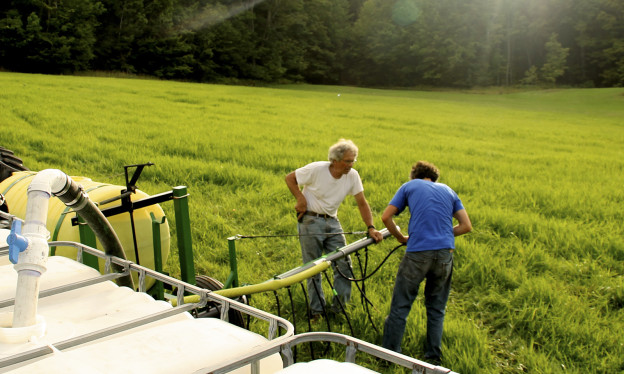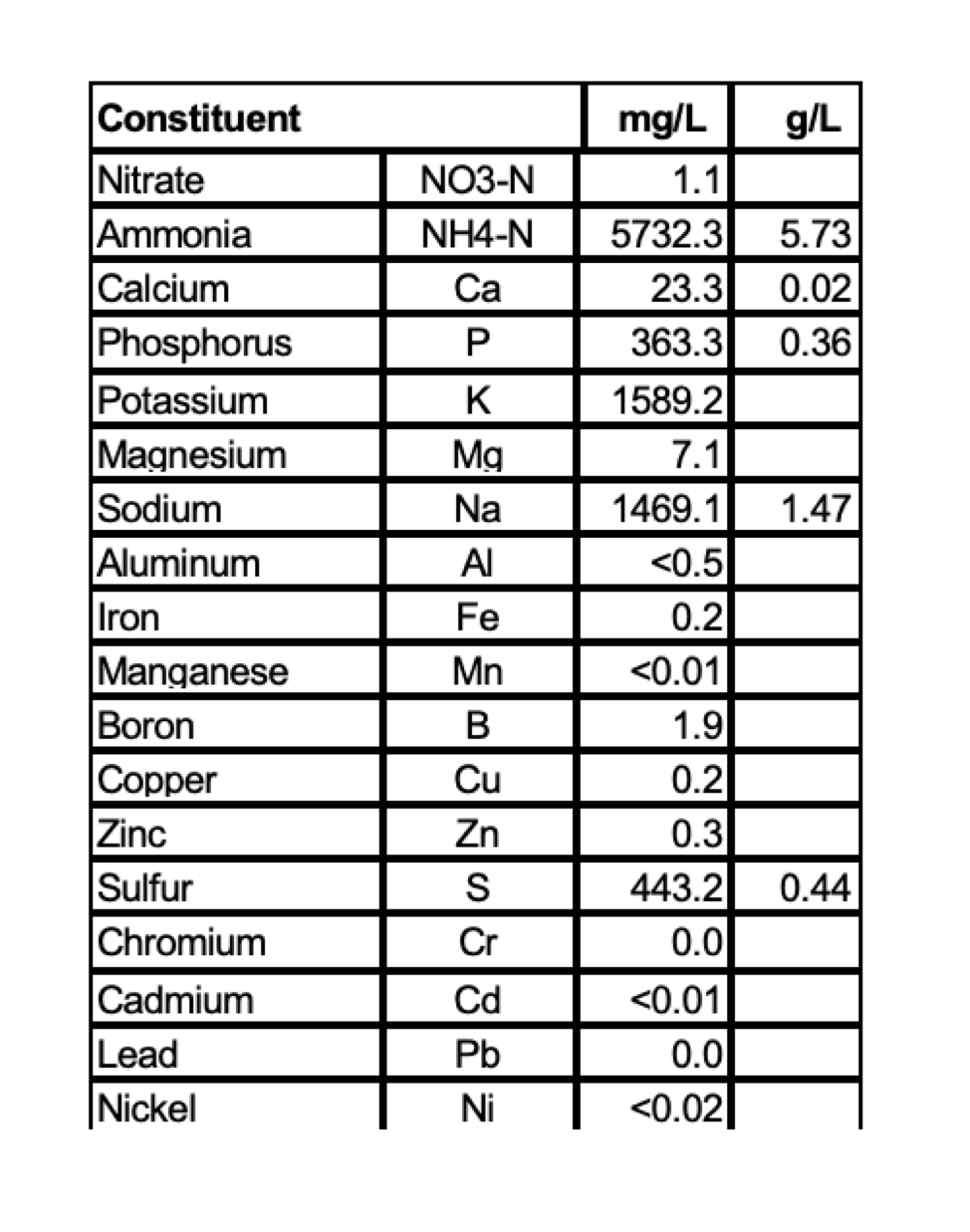Farming

Urine is a sustainable, local alternative to commonly-used synthetic fertilizers.
Does it work?
The urine one person produces annually contains enough fertilizer to grow nearly a whole year’s supply of food.
Human waste is rich in nitrogen (N), phosphorus (P), potassium (K), and other elements essential to plant growth. Just like animal manure, human waste can be sanitized and transformed into natural, sustainably-produced fertilizer for use on agricultural soils.
Urine contains most of the fertilizer found in human waste, containing 80-85% of the nitrogen and 66% of the phosphorus that we flush away each day. Urine also wins from a public health perspective. The diseases associated with poor sanitation are fecal pathogens, while urine is generally free of pathogens and easily sanitized.
Adults produce between 100 and 150 gallons of urine per year, containing about 9 pounds of nitrogen and 0.8 pounds of phosphorus. Used to fertilize grain, this is enough to grow wheat for making a loaf of bread every day of the year.
Nitrogen
Most farms in the US get their nitrogen from synthetic fertilizers. These are created through the energy-intensive Haber-Bosch process, which contributes to about 1% of global carbon emissions (visit Ammonia Industry for this calculation). Alternatively, farmers who wish to take a more ecological approach to agriculture are faced with limited options, including chilean nitrate, blood meal, bone meal, dried chicken manure, soy meal, or alfalfa meal. Each of these can require farmers to import nutrients from distant locales, have adverse environmental effects, exist in limited supply, and are more expensive than synthetic fertilizer. In contrast, urine is a locally available renewable resource that can be quite affordable for farmers. See the economy page for more information on how this works.
Phosphorus
Farming is impossible without phosphorus, which is essential to all life. The mined rock phosphate used to make fertilizer is a non-renewable resource, and high-quality reserves are gradually and steadily being depleted. (This mineral is the source of synthetic phosphate fertilizer, and also the powdered rock phosphate used in organic agriculture.) But the good news is that urine is rich in phosphorus, and by using urine as a fertilizer this limited resource can be recycled indefinitely to grow new crops. For a more thorough discussion of the phosphoros issue, see this article written by Rich Earth Institute staff member Tatiana Schreiber.
Micronutrients
Urine also contains a wide range of micronutrients important for plant growth that are not present in most commercially available fertilizers. A breakdown of these from a typical sample of urine in Rich Earth’s urine collection program is included below.


